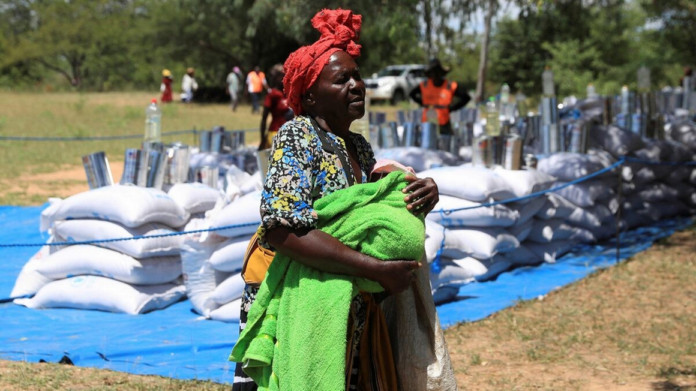Zimbabwe (KAAB TV) – More than half of Zimbabweans will require food assistance this year after a severe drought destroyed crops, as relief groups seek cash to save more people from starvation, according to the cabinet. Next Tuesday is the national holiday.
According to the Zimbabwe Livelihoods Assessment Commission, approximately 6 million people in rural areas and 1.7 million in urban areas would require assistance.
Zimbabwe is one of the countries hardest hit by the El Niño drought in Southern Africa, with Zambia and Malawi also facing food shortages this year.
Climate change has caused catastrophic drought in Southern Africa.
The government says Zimbabwe is experiencing its worst drought in 40 years.
The most recent crop assessment submitted to Zimbabwe’s Cabinet also reduced maize production to 77 percent of last week’s prediction.
According to a cabinet briefing, production is expected to fall by 77% to 744,271 metric tonnes in the summer of 2023/2024, indicating a large decline in food and food stocks.
To address food shortages, a local private producer cooperative wants to import 1.4 million metric tonnes of white and yellow maize from Brazil and other nations.
The UN and its children’s organisation, Unicef, have requested financial assistance to spare millions from famine.
Zimbabwe has declared the drought a national calamity.
It follows the government requests $2 billion in food help from benefactors and donations.
Zimbabwe has been unable to feed itself since 2000, when previous President Robert Mugabe implemented land reforms that interrupted agriculture, while climate change has exacerbated the country’s ability to obtain adequate food.


